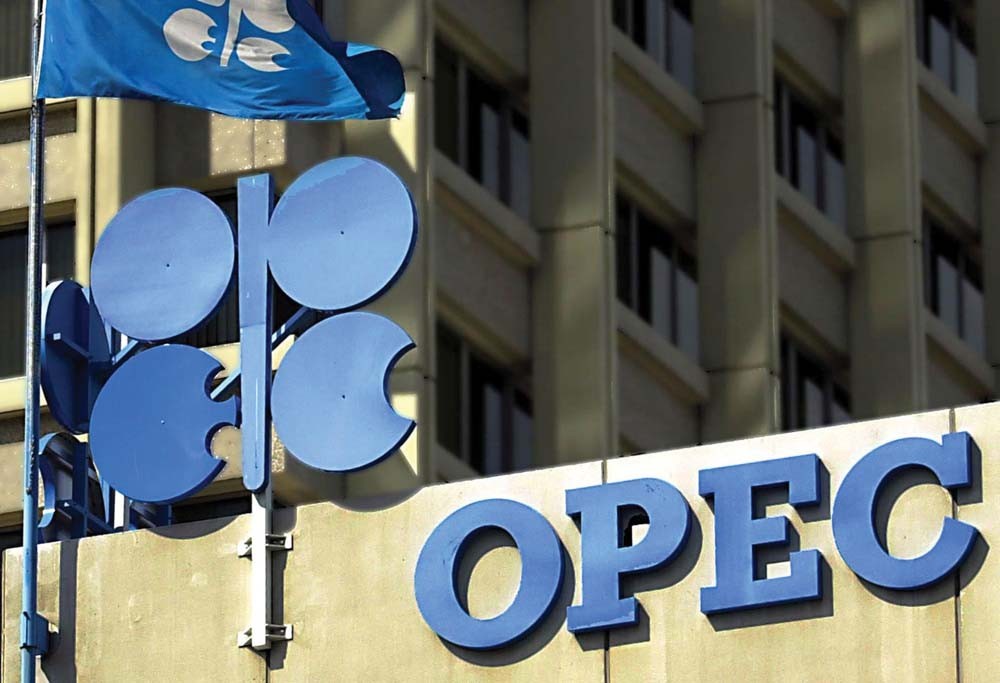
The collapse in relations between Saudi Arabia and Iran raises serious questions about the future of OPEC

Brent crude dropped to the $30 per barrel level on January 12 -- the lowest in 11 years -- and even below that mark briefly on January 13. Some argue that given the current trends -- China’s economic slowdown, the performance of the dollar and the low levels of demand in the wake of massive supply -- it could just as well hit a low of $20 per barrel in the coming days.
The world is going through a period of excess oil supply, so much so that even the impact of mounting tension between Saudi Arabia and Iran has gone largely unregistered as far as the oil market is concerned. Gone are the days when a bit of turbulence in the Middle East would have investors and countries at large breaking a nervous sweat. When the world produces 1.5 million barrels per day in excess of what it needs, there is a huge cushion to count on.
Yet, the collapse in relations between Saudi Arabia and Iran raises serious questions about the future of OPEC. The solidarity has been put to test more than once, especially after the US stepped foot into the market post the shale oil revolution. The OPEC talks to address the issues of production ceilings and price control in the past, too, have amounted to little more than a war of words -- a testimony to the unsustainability of the current status quo amidst rifts and rivalries.
In December 2015, the last time the OPEC members convened to talk on oil production, the meeting brought the division within the cartel to the forefront once again. It is not entirely unprecedented that Iran today has opted to play hardball -- in the wake of the lifting of sanctions on Iran in the coming months, it stands to benefit a great deal from not having any output restrictions.
It seems as though things have come a full circle; in the beginning, it was the Saudis who sowed the seeds of discontent by continuing production at exorbitant levels in an attempt to sustain its dominance even at the cost of shrinking profits in the wake of falling prices. All of this was done in an attempt to push the new entrant, US, out of the market by making the oil business a less lucrative affair. While Saudi Arabia had the financial muscle to withstand the blow, smaller members like Iran -- ironically, it can now add another million barrels per day to global oil production -- were left out of the picture.
Unless a full-fledged war breaks out where the supplies are directly threatened, there is perhaps little to worry about, except for those referred to as the ‘fragile five’ -- a group which consists of the OPEC’s most vulnerable nations, including Algeria, Iraq, Libya, Nigeria, and Venezuela and can be classified as collateral damage.
Read also: Saudi Arabia’s latest coalition: Force or farce?
To put it simply, the war for influence in the political arena will be supplemented by one for market shares in the economic arena. The Shi’ite opposition has come forth boldly to counter Saudi Arabia on the back of the privileges granted after the Rouhani administration signed the nuclear deal signed with the US. The panic and anxiety that is radiating from Riyadh is justified and predictable.
While Syria has served as a battleground in recent times, it does not seem that either of the two parties has even come close to quenching the thirst for regional influence. The oil market is perhaps a more traditional and widely acknowledged battleground for the two. From 2014 uptill now, both contenders and ironically-speaking OPEC members have been experiencing losses.
The question to ask, however, is what happens to oil production and prices if Iran is suddenly in a better position to wither blows?
The Iranian energy minister, Bijan Zanganeh, has officially said that Iran "would not seek to distort the markets" after there was talk of Iran making an aggressive comeback. It is being said that Iran will take a more balanced and cautious approach where it will gradually increase its production given that prices are already very low. However, there is sufficient reason to believe that this might as well be a bluff. To begin with, this is just a statement; one that stands out given Iran’s aspirations and one that has been given before the sanctions have actually been lifted.
Oil is just a part of the rivalry between Saudi Arabia and Iran; it cannot be divorced from the ambitions of either of the two oil-exporting countries. The fact that restraint is at the moment being used does not mean that the two Middle Eastern nations who are currently fighting a proxy war as well will not seek to undermine each other’s economy.